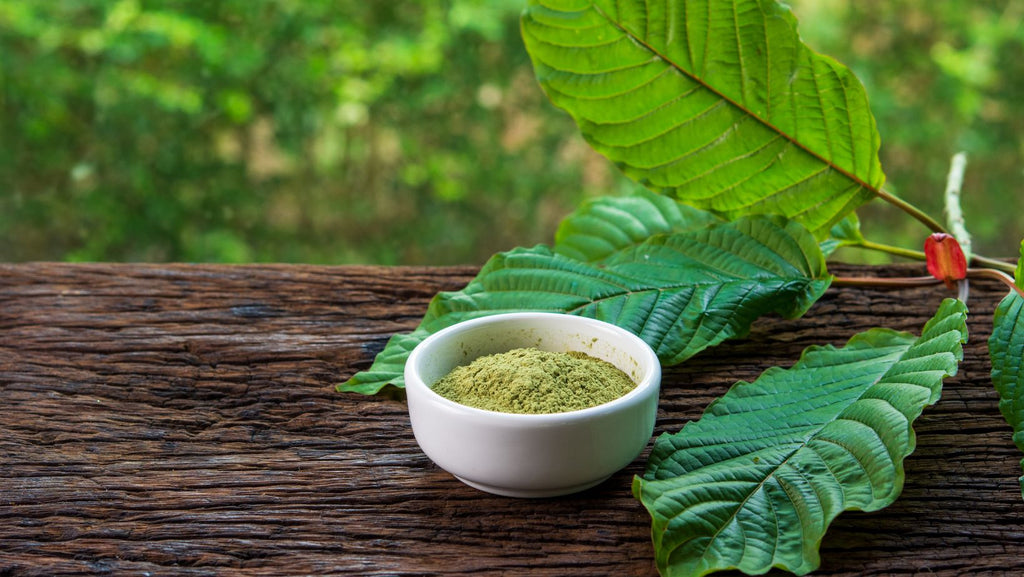Discover the legal status of kratom in North Carolina, including age restrictions, regulations, and what future developments may hold.
Introduction to Kratom: Understanding Its Uses and Controversies
Kratom, a tropical tree native to Southeast Asia, has gained popularity worldwide for its potential pain-relieving and mood-enhancing properties. Derived from the leaves of the Mitragyna speciosa plant, kratom products are consumed in various forms, including kratom powders, kratom capsules, and teas.

However, kratom's rising popularity comes with its share of controversies. Debates regarding its safety, potential for abuse, and effectiveness have led to a varied legal landscape across the globe. In the United States, the legal status of kratom varies from state to state, with regulatory authorities like the FDA and DEA closely monitoring its effects and market distribution.
The Legal Status of Kratom in North Carolina: What You Need to Know
In North Carolina, kratom is legal for individuals aged 18 and over, allowing adults to legally purchase, possess, and consume kratom products such as powders, capsules, and teas. This legal status reflects an acknowledgment of kratom's potential benefits for health and well-being, while also granting individuals the autonomy to manage their own health choices.
Despite its legality, the use of kratom in North Carolina is under close observation by lawmakers and public health officials. They are keenly monitoring ongoing research and reports about kratom’s effects, safety, and potential for dependency, especially in light of federal discussions and regulations like those highlighted in the 2018 Farm Bill, which calls for more research into natural substances.
Kratom users in the state are encouraged to exercise responsible use, ensuring they source their kratom from credible suppliers that adhere to strict quality and labeling standards. By staying informed on the latest research and legislative updates, North Carolinians can navigate the complexities surrounding kratom use, ensuring they do so safely and legally.
A Closer Look at North Carolina's Kratom Regulations
North Carolina's approach to regulating kratom is aimed at balancing the substance's accessibility with public safety concerns. The state mandates that:
- Kratom products must be labeled with their ingredients.
- Sales are restricted to individuals over the age of 18.
- Kratom cannot be sold in packaging that suggests it can be inhaled or injected.
- Retailers must ensure that products do not contain harmful contaminants.
These regulations are designed to protect consumers and ensure that kratom products sold in the state are of a certain standard. However, the regulatory landscape is dynamic, and changes could occur based on new research or shifts in public health policy.
Why the Legality of Kratom Is a Hot Topic in North Carolina
The discussion around kratom's legality in North Carolina is driven by a complex interplay of factors. Proponents argue that kratom offers a natural alternative to prescription painkillers and can be a valuable tool in combating the opioid epidemic.
On the other side of the debate, some health experts and law enforcement officials express concerns about kratom's safety profile, potential for abuse, and lack of FDA approval. These contrasting views make kratom's legal status a contentious issue, with ongoing debates likely to influence future regulations.
Comparing Kratom Laws: North Carolina vs. Other States
|
State |
Legal Status |
Age Restrictions |
Regulatory Notes |
|
North Carolina |
Legal |
18+ |
Ingredient labeling required |
|
Tennessee |
Legal |
21+ |
Must be sold in natural form only |
|
Alabama |
Illegal |
N/A |
Banned outright |
|
Florida (General) |
Legal |
18+ |
Local bans in specific counties |
|
Wisconsin |
Illegal |
N/A |
Banned outright |
How North Carolina's Kratom Legality Affects You
Consumers can buy kratom in various forms, such as powders and capsules, from local kratom stores or online retailers. However, with this access comes the responsibility to use kratom safely and ethically, understanding the potential risks and benefits.
It's important for users to research and choose high-quality kratom products from reputable sources. The state's regulations are in place to ensure consumer safety, but individual diligence is also crucial in making informed decisions about kratom use.
Navigating Kratom Usage in North Carolina: A Guide for Residents
For those in North Carolina considering kratom, here are some tips to navigate its use safely and legally:
- Verify the age requirement: Ensure you're over 18 to purchase or possess kratom.
- Choose reputable vendors: Buy kratom from reputable sources that provide product testing and transparent ingredient lists.
- Start with low doses: If you're new to kratom, begin with a low dose to gauge its effects on your body.
- Be aware of potential interactions: Consult with a healthcare provider if you're taking other medications or have underlying health conditions.
- Stay informed: Keep up with any legal changes or health advisories related to kratom use in North Carolina.
Following these guidelines can help ensure a positive and safe experience with kratom.
Shipping Kratom Products To & From North Carolina
Shipping kratom products to and from North Carolina is currently permitted, given the state's legal status of kratom for individuals over the age of 18. This means that both consumers within North Carolina and those in other states where kratom is legal can buy or sell kratom products, including but not limited to powders, capsules, and teas, provided they comply with the following guidelines:
- Age Restrictions: All parties involved in the transaction must be over the age of 18. Sellers should verify the age of buyers to ensure compliance with state laws.
- Labeling Requirements: Products must be accurately labeled with ingredients, ensuring consumers are fully informed about what they are purchasing. This is particularly important to maintain transparency and trust.
- Quality Assurance: It is advised to ship kratom that has been subjected to quality testing. Reputable vendors will typically provide lab results verifying the product's purity and potency.
- Local Laws and Regulations: Both the sender and receiver should be aware of and adhere to the kratom laws in their respective locations. Since laws vary by state, what is permissible in North Carolina might not be in another state, and vice versa.
Recent Developments and Future Outlook on Kratom in North Carolina
Kratom's legal status in North Carolina currently stands as legal, but it is subject to ongoing evaluation and scrutiny. The landscape is influenced by new research into kratom's benefits and potential risks, along with the efforts of advocacy groups and the kratom community to ensure its accessibility. These stakeholders are actively involved in educating the public and legislators about kratom, advocating for its safe and regulated use.
The trajectory of kratom legislation in North Carolina will likely be shaped by scientific findings, public sentiment, and policy decisions. Engaging in dialogue, sharing evidence-based information, and fostering an understanding of kratom's impact are crucial steps for all involved parties. This cooperative effort aims to shape a regulatory environment that balances safety with personal freedom.

Key Points for Future Consideration:
- Ongoing Research: The impact of emerging studies on kratom’s safety and effectiveness.
- Advocacy Efforts: The role of kratom advocacy groups in influencing public policy.
- Regulatory Changes: Potential updates to laws based on new evidence or public health concerns.
- Public Education: Efforts to increase awareness about responsible kratom use.
- Safety and Regulation: Balancing access to kratom with measures to ensure product purity and consumer safety.
- Legal Precedents: How legal decisions in other states might affect North Carolina's stance.
- Community Engagement: The importance of kratom user participation in legislative processes.
- Market Monitoring: Oversight of kratom sales to prevent misuse and ensure quality.
Kratom Advocacy and Opposition: Key Voices in North Carolina
In North Carolina, the debate over kratom's legality has brought together a diverse group of advocates and opponents. Advocacy groups, such as the American Kratom Association, work to promote safe access to kratom, emphasizing its potential benefits and advocating for regulation rather than prohibition. These groups argue that proper regulation can mitigate risks while preserving the positive aspects of kratom use.
Opponents, including some medical professionals and law enforcement agencies, raise concerns about safety, potential for abuse, and the lack of FDA approval. They argue that without comprehensive regulation and oversight, kratom poses significant public health risks.
Final Thoughts?
In conclusion, kratom remains a legal substance in North Carolina for individuals over the age of 18, with regulations requiring ingredient labeling to ensure consumer safety. As the state navigates the complexities of kratom's legal status, ongoing research, advocacy, and public dialogue play pivotal roles in shaping its future.
Whether you're a consumer, lawmaker, or simply a curious observer, staying informed and engaged with the evolving discourse around kratom is crucial. North Carolina's approach to kratom legislation highlights the broader national conversation on balancing the potential therapeutic benefits of kratom with the need for responsible regulation and safety measures.
As developments unfold, the state's stance on kratom will continue to reflect a nuanced understanding of this unique plant and its place in public health and wellness.
FAQs: Addressing Your Questions About Kratom's Legality in North Carolina
Q: Can I use kratom in public places in North Carolina?
A: While kratom is legal, discretion is advised in public spaces. Always check local regulations as policies can vary.
Q: Is it legal to grow kratom plants in North Carolina?
A: Growing kratom plants falls into a legal gray area as the law primarily concerns processed products. Consult local regulations for clarity.
Q: Can I travel to North Carolina with kratom?
A: Yes, traveling within North Carolina with kratom is legal for adults over 18, but be mindful of laws if crossing state lines.
Q: Are there any penalties for underage possession of kratom in North Carolina?
A: Yes, selling to or possession by individuals under 18 can lead to legal consequences, emphasizing the importance of adhering to age restrictions.
Q: How can I stay updated on changes to kratom legislation in North Carolina?
A: Follow local news, join kratom advocacy groups, and regularly check official state websites for the most current information.
Q: Do health professionals in North Carolina support the use of kratom?
A: Opinions vary among health professionals. Some acknowledge its potential benefits, while others caution against risks. Consult with a healthcare provider for advice tailored to your health needs.


